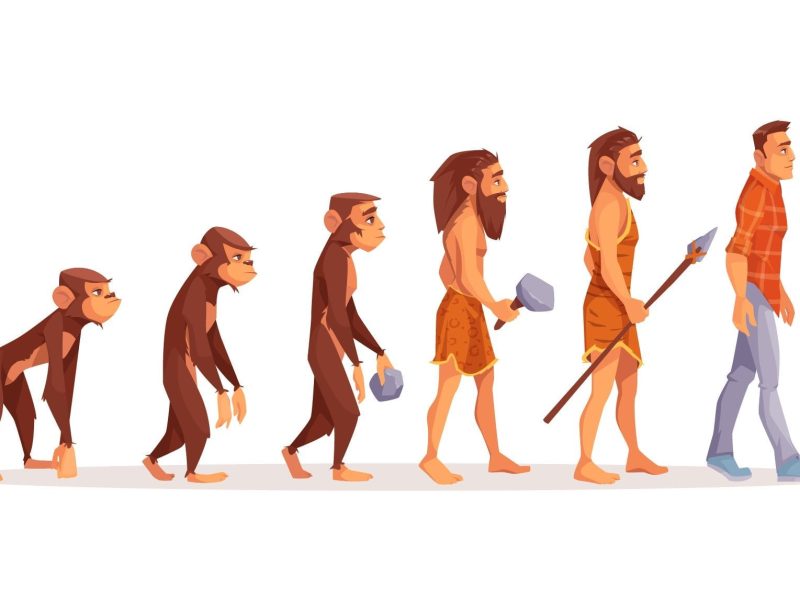Anthropology is the study of humans and their ancestors in the past and present. It is a holistic discipline that considers the biological, cultural, and social aspects of human beings. General anthropology is the study of the general principles of human behavior and the variety of ways in which these principles are expressed. It is a broad field that includes topics such as human origins, language, culture, religion, and social organization.
Anthropology is a relatively young discipline, having been first formally recognized as a field of study in the late 1800s. However, it draws on a long tradition of study of human beings by scholars from a variety of different disciplines, including archaeology, biology, linguistics, and sociology. General anthropology is taught in universities around the world and is used as an umbrella term to describe the various specialty areas within the field.
Some of the key areas of study within general anthropology include:
-Human origins: This area of study focuses on the origins and evolution of humans. It includes topics such as the study of fossil evidence, the origins of language, and the development of culture.
-Cultural anthropology: This area of study examines the customs and cultures of different peoples around the world. It includes the study of social and religious rituals, kinship systems, and linguistic diversity.
-Linguistic anthropology: This area of study investigates the relationship between language and culture. It includes the study of the structure of languages, the origins of language, and the use of language in cultural context.
-Sociocultural anthropology: This area of study looks at the ways in which human beings interact with each other on a social level. It includes the study of social institutions, such as marriage, family, and religion, as well as the analysis of social change.
General anthropology is a diverse and fascinating field that offers a wide range of opportunities for exploration. It is an excellent choice for students who are interested in learning about the diverse ways in which human beings have adapted and responded to their environment.
What is anthropology general?
Anthropology is the study of humans, their cultures, and their societies. It is a general anthropology that covers all aspects of the human condition. It is a holistic field that considers all aspects of the human experience, from biology and archaeology to linguistics and cultural studies.
Is General anthropology hard?
Anthropology is the study of humans and their cultures, societies, and physical and linguistic characteristics. General anthropology is the study of the general principles of human behavior and culture.
So is general anthropology hard? It depends on what you mean by hard. It is definitely a challenging field of study, but it is also rewarding. There are many different aspects of anthropology to learn, from cultural anthropology to physical anthropology to archaeology.
If you are interested in learning about human behavior and culture, then general anthropology is definitely for you. It is a complex and fascinating field of study, and there is always something new to learn. However, it takes dedication and hard work to succeed in anthropology. You need to be willing to put in the time and effort to learn all there is to know about this field.
If you are interested in pursuing a career in anthropology, there are many different specialties you can focus on. There is no one right path to take in anthropology. It is a field that offers many opportunities for exploration and discovery.
So is general anthropology hard? The answer is yes and no. It is hard in the sense that it is a challenging field of study. But it is also rewarding and exciting, and there are many different paths you can take in this field. If you are willing to put in the time and effort, general anthropology can be a rewarding experience for you.
What are the 3 types of anthropology?
Anthropology is the study of humans and their behavior in past and present societies. It can be divided into three different types: cultural anthropology, physical anthropology, and archaeology.
Cultural anthropology is the study of human cultures, beliefs, and practices. It looks at how humans interact with their environment and each other.
Physical anthropology is the study of human physical characteristics, such as bones and DNA. It can help us learn about the evolution of humans and their ancestors.
Archaeology is the study of ancient cultures. It involves looking at the artifacts and remains of these cultures to learn about their way of life.
What is general anthropology?
Anthropology is the study of humans, their behavior, and their cultures. It is a broad field that covers everything from the biology of humans to their cultural traditions. General anthropology is the study of the general concepts and principles that apply to all branches of anthropology. It is a foundational field that provides a basis for understanding the other branches of anthropology.
One of the main goals of general anthropology is to understand the similarities and differences between humans and other animals. Anthropologists study the physical and behavioral characteristics of humans, as well as the ways in which humans interact with each other and their environment. They also explore the origins and evolution of humans, as well as their cultural traditions.
General anthropology is an important field because it provides a foundation for understanding the other branches of anthropology. It allows anthropologists to develop a more holistic understanding of human behavior and culture. It also helps to clarify the differences between humans and other animals, and to explore the origins and evolution of human culture.
What is the basic study of anthropology?
Anthropology is the scientific study of humans, both past and present. It is a holistic discipline that considers the biological, social and cultural dimensions of human beings.
Anthropology has four main subfields: physical anthropology, archaeology, cultural anthropology and linguistic anthropology.
Physical anthropology is the study of the human body, including its evolution and variation.
Archaeology is the study of the material remains of human cultures.
Cultural anthropology is the study of human cultures and their beliefs, practices, and values.
Linguistic anthropology is the study of human language and its use in communication.
What is the purpose of studying anthropology?
Anthropology is the study of humans and human culture. It is a holistic science that examines all aspects of human beings, from biology and archaeology to linguistics and sociology. Anthropology helps us to understand the origins and development of human cultures, their similarities and differences, and the ways in which humans interact with their environment.
Anthropology has a number of practical applications. It can be used to help us understand and resolve conflicts between different groups of people, to develop better health care and social services, and to design more effective educational programs. Anthropologists also work in the tourism industry, helping to create and interpret cultural experiences for visitors.
The study of anthropology is also of great value for its own sake. It helps us to understand the complex and fascinating nature of human beings, and to appreciate the diversity of the world’s cultures. Anthropology is a gateway to a better understanding of the human experience, and it can be enjoyed by people of all ages and backgrounds.
What is general anthropology class?
Anthropology is the study of humans and their culture. It is a holistic discipline that considers all aspects of human life and how it is shaped by the environment. There are several different branches of anthropology, but general anthropology is the study of the origins, development, and present state of human culture.
General anthropology is an introductory course that covers the four main fields of anthropology: cultural anthropology, archaeology, linguistics, and physical anthropology. It introduces students to the methods and theories used by anthropologists to understand human culture. General anthropology classes typically include a survey of human evolution, the origins of language, and cultural diversity around the world.
Anthropology is a fascinating and multidisciplinary field that can provide insights into all aspects of human life. If you’re interested in learning more about the origins and evolution of human culture, then a general anthropology class may be the perfect fit for you.
What is anthropology in simple words?
Anthropology is the study of humans and their cultures. It is a broad discipline that covers everything from social anthropology to physical anthropology to archaeology.
Anthropology is a holistic discipline, which means that it takes into account all aspects of human life and culture. It looks at both the biological and cultural aspects of humans, as well as the interaction between them.
Anthropology is one of the oldest sciences, and it has evolved a great deal over the years. It is now considered to be a social science, and it is used to understand human behavior and culture.
Anthropology can be used to understand everything from the way different cultures operate to the way humans evolved. It is a valuable tool for understanding the world around us, and it can be used to help solve social problems.
Why is anthropology difficult?
Anthropology is one of the most fascinating and complex fields of study. But it can also be difficult. There are various reasons why anthropology may be difficult for students to master.
One reason is that anthropology is a very diverse discipline. It encompasses a wide range of topics, from human evolution and culture to language and social organization. This can make it difficult for students to know where to start and how to structure their studies.
Another reason why anthropology may be difficult is that it requires a lot of fieldwork. This can be challenging both physically and mentally. Students must be prepared to spend long hours in the field, often in difficult and uncomfortable conditions.
Finally, anthropology can be difficult because it is a complex and nuanced field of study. There are often multiple ways to interpret and understand cultural phenomena. This can make it difficult for students to develop a strong understanding of the material.
Despite these difficulties, anthropology is a fascinating and rewarding field of study. With hard work and dedication, students can overcome the challenges and become successful anthropologists.
Is anthropology a difficult subject?
Is anthropology a difficult subject?
This is a difficult question to answer, as it depends on the individual and their level of understanding. Generally speaking, anthropology can be a difficult subject to learn and understand, as it covers a wide range of topics, from human origins to cultural diversity. However, with a bit of effort, anyone can come to understand the basics of anthropology.
One of the reasons why anthropology can be difficult is because it is a holistic discipline. This means that it considers all aspects of human life and behaviour, from the physical to the cultural. This can make it difficult to know where to start, but with a little effort, it is possible to get to grips with the basics.
Another reason why anthropology can be difficult is because it is a comparative discipline. This means that anthropologists compare different cultures in order to understand the similarities and differences between them. This can be challenging, but it is also a fascinating aspect of the discipline.
Ultimately, anthropology can be a difficult subject to learn and understand. However, with a bit of effort, it is possible to get to grips with the basics. And, once you have a basic understanding of the discipline, you will find that it is one of the most fascinating and interesting fields of study.
What is college anthropology class like?
Anthropology is the study of humans and their societies, both past and present. It covers a wide range of topics, from the biology and physical characteristics of humans to the customs and beliefs of different cultures.
So what is college anthropology class like? In a typical anthropology course, you’ll learn about the different branches of anthropology, such as archaeology, cultural anthropology, and physical anthropology. You’ll also look at the different methods anthropologists use to study human cultures and societies.
One of the great things about anthropology is that it provides a holistic perspective on humans and their cultures. In other words, it considers all aspects of human life, from the physical to the spiritual. This can be a valuable perspective in today’s increasingly global world.
Anthropology can also be a fascinating way to learn about other cultures. For example, you might learn about the customs and beliefs of the Huli people of Papua New Guinea, or the traditional music of the Pygmies of central Africa.
So if you’re interested in learning about humans and their cultures, anthropology is a great field to explore. It can provide you with a wealth of knowledge and insight into the world around you.
What are types of anthropology?
Anthropology can be broadly classified into four types: cultural anthropology, linguistic anthropology, physical anthropology, and archaeological anthropology.
Cultural anthropology is the study of human culture and behavior. It examines the customs, beliefs, and practices of different cultures around the world. Linguistic anthropology is the study of language and communication. It explores how language is used to express culture and how communication affects social behavior. Physical anthropology is the study of human physical characteristics and evolution. It investigates the biological and genetic origins of human beings and their ancestors. Archaeological anthropology is the study of human cultures through their material remains. It examines the history and evolution of human cultures by studying the artifacts and remains they left behind.
What are the 4 major fields of anthropology?
Anthropology is the study of humans and their ancestors in the past and present. It is a broad field that covers a range of topics, from the biology and evolution of our species to the cultures and societies we have created.
There are four main subfields of anthropology: cultural anthropology, biological anthropology, linguistic anthropology, and archaeological anthropology.
Cultural anthropology is the study of human cultures, both past and present. It looks at the ways that people interact with their environment, their beliefs and values, and their social and political systems.
Biological anthropology is the study of human biology and evolution. It examines the physical characteristics and genetic makeup of humans, as well as the ways in which humans have evolved over time.
Linguistic anthropology is the study of human language. It looks at the origins of language, how it is used, and how it affects communication and cultures.
Archaeological anthropology is the study of human cultures through their material remains. It examines the artifacts and ruins of past civilizations in order to learn about their customs, beliefs, and technologies.
What are the 5 branches of anthropology?
Anthropology is the study of humans, their culture, and their physical and social evolution. There are five main branches of anthropology: physical anthropology, archaeology, cultural anthropology, linguistic anthropology, and social anthropology.
Physical anthropology is the study of human physical characteristics, such as anatomy, genetics, and evolution. Archaeology is the study of past human cultures through the examination of artifacts. Cultural anthropology is the study of living cultures, their beliefs, customs, and social relationships. Linguistic anthropology is the study of human language and its use in communication. Social anthropology is the study of human social behavior, including the study of kinship, marriage, and religion.
What are 3 things cultural anthropologists do?
Cultural anthropologists are the people who study human cultures and societies. They conduct research on a variety of topics, such as the beliefs and customs of different cultures, the way language is used, and the way that people interact with their environment.
Here are three things that cultural anthropologists do:
1. They conduct field research.
Cultural anthropologists often travel to different parts of the world to conduct field research. This involves observing people in their natural environment and talking to them about their beliefs and customs.
2. They analyze cultural data.
Cultural anthropologists analyze a variety of data, such as interviews, field notes, and photographs. This helps them to understand the customs and beliefs of different cultures.
3. They share their findings.
Cultural anthropologists share their findings with the world through books, articles, and lectures. This helps to educate people about the customs and beliefs of different cultures.



